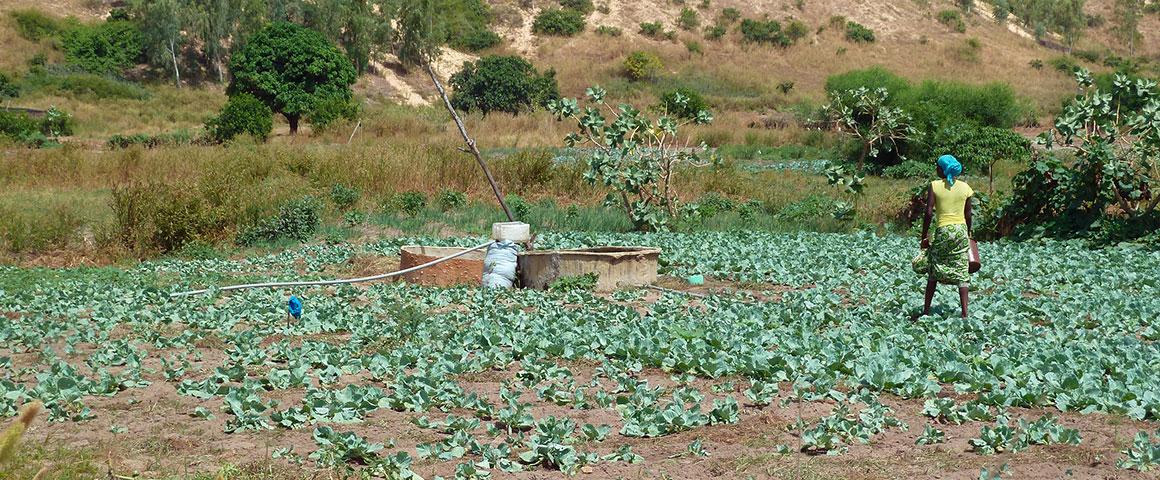- Home
- About us
- Research units
- RECYCLING AND RISK
Recycling and Risk - UPR Recyclage et risque

Cabbage cultivation in the Niayes, Senegal. F. Feder, CIRAD
Within this context, UR Recycling and Risk studies nutrient and contminant fluxes on various interlinked scales (from molecule to territory), so as to assess the agronomic and environmental impacts of ROP recycling. The aim of its research is to come up with solutions, methods or models so as to recycle waste via agricultural practices whose agro-environmental risks are controlled, making optimum use of the capacity of the soil and plants to purify that waste and weighing up the complementarities or clashes between various types of ROP uses on a territory level.
























